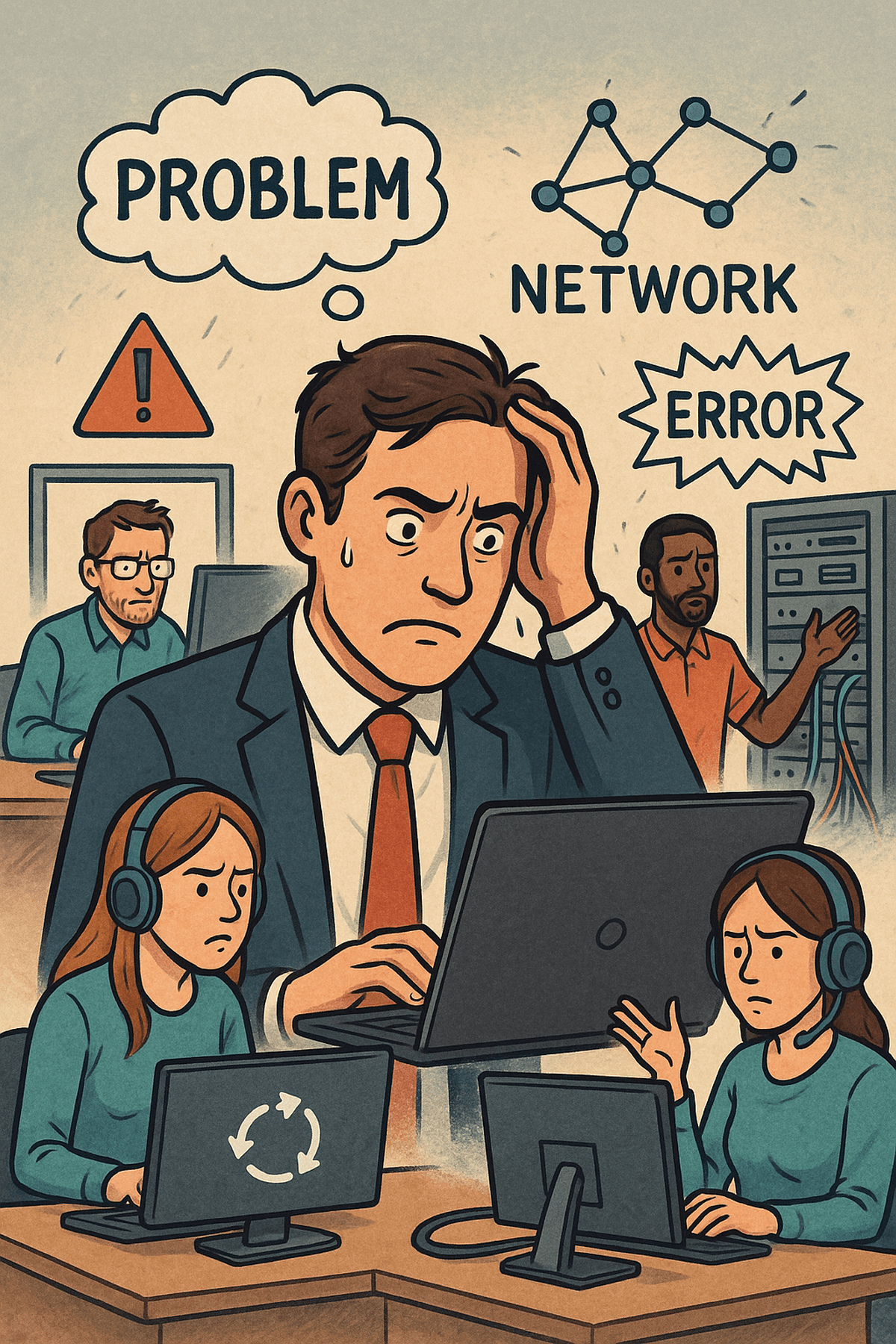There are many leadership challenges in Information Technology that are unique to the field. In today’s digital-first world, information technology (IT) is not just a support function—it is a strategic cornerstone. As a result, leadership in IT demands more than technical expertise; it requires a sophisticated balance of technical knowledge, business acumen, emotional intelligence, and adaptability. This article explores the unique challenges faced by IT leaders and how they can navigate these complexities to drive innovation and resilience within their organizations.
1. Rapid Technological Change
The Leadership Challenges in Information Technology:
One of the most pressing challenges IT leaders face is keeping pace with the breakneck speed of technological advancement. Cloud computing, artificial intelligence, machine learning, quantum computing, blockchain—each year brings new tools, platforms, and paradigms. Unlike leaders in other domains, IT leaders must continuously reassess and realign technology strategies to remain competitive.
Leadership Implications:
- Staying up to date requires lifelong learning and a willingness to embrace disruption.
- IT leaders must inspire their teams to remain curious, agile, and open to experimentation.
- Strategic foresight is essential—leaders must distinguish between transient trends and transformative technologies.
2. Talent Acquisition and Retention
The Leadership Challenges in Information Technology:
There’s a well-documented shortage of skilled IT professionals. With high demand for top-tier developers, cybersecurity experts, cloud architects, and data scientists, retaining talent is increasingly difficult.
Leadership Implications:
- IT leaders must cultivate a strong culture of learning, autonomy, and purpose to reduce turnover.
- Remote work adds another layer of complexity, requiring new methods of engagement and collaboration.
- Effective leadership means balancing compensation and perks with meaningful career paths and mentorship.

3. Cybersecurity and Risk Management
The Leadership Challenges in Information Technology:
Cybersecurity threats evolve continuously, making it a persistent concern for IT leaders. From ransomware attacks to insider threats and data breaches, the stakes are high—financially, legally, and reputationally.
Leadership Implications:
- IT leaders must integrate security into every phase of system and software development.
- They must communicate risks clearly to non-technical executives and boards.
- Leading a culture of security awareness throughout the organization is as vital as deploying technical defenses.
4. Bridging the IT-Business Gap
The Leadership Challenges in Information Technology:
Despite IT’s strategic importance, many organizations still struggle with the disconnect between IT and business teams. Misaligned goals, poor communication, and conflicting priorities can derail projects.
Leadership Implications:
- IT leaders must serve as translators—fluent in both technical and business languages.
- They must proactively engage stakeholders, ensuring technology initiatives align with core business objectives.
- Strong communication and collaboration skills are critical to eliminate silos.
5. Managing Technical Debt
The Leadership Challenges in Information Technology:
Technical debt—short-term solutions that compromise long-term performance—is a chronic issue. As systems age and patches accumulate, maintenance becomes increasingly costly and risky.
Leadership Implications:
- IT leaders must make difficult trade-offs between innovation and infrastructure upkeep.
- They need to advocate for investment in refactoring, modernization, and documentation.
- Managing technical debt requires strategic prioritization and transparency with business leaders.

6. Leading Diverse and Distributed Teams
The Leadership Challenges in Information Technology:
Globalization and remote work have made IT teams more diverse and geographically dispersed. While this offers access to a broader talent pool, it also introduces challenges related to communication, coordination, and culture.
Leadership Implications:
- IT leaders must develop inclusive leadership skills and cultural sensitivity.
- Asynchronous workflows, digital collaboration tools, and flexible schedules are key to managing remote teams effectively.
- Leaders must foster cohesion and trust, despite time zones and physical distance.
7. Delivering Innovation Under Constraints
The Leadership Challenges in Information Technology:
IT is expected to deliver rapid innovation while facing tight budgets, regulatory compliance, and legacy constraints. Unlike R&D departments, IT often must innovate with existing tools and resources.
Leadership Implications:
- Creative problem-solving and strategic prioritization are essential.
- IT leaders must manage expectations, balancing risk and reward when proposing novel solutions.
- They must instill a culture of continuous improvement, where small innovations build long-term transformation.
8. Change Management and Digital Transformation
The Leadership Challenges in Information Technology:
Implementing new systems or transitioning to digital platforms involves organizational change, which often meets resistance from users and stakeholders.
Leadership Implications:
- Successful IT leaders are also change leaders. They must build buy-in and guide teams through transitions.
- Communication, empathy, and training are as important as technology selection.
- Leaders must address the emotional side of change, fostering a sense of inclusion and ownership among affected users.
9. Ethical and Regulatory Considerations
The Leadership Challenges in Information Technology:
As technology becomes more embedded in daily life, IT leaders face increasing scrutiny around privacy, bias, automation, and surveillance. Regulatory frameworks like GDPR, HIPAA, and others add layers of responsibility.
Leadership Implications:
- Leaders must design and implement systems that are not only compliant but ethically sound.
- Transparency, accountability, and governance should be baked into development practices.
- IT leaders must advocate for responsible AI, data ethics, and digital fairness.
10. Measuring Success Beyond Technical Metrics
The Leadership Challenges in Information Technology:
Traditional performance metrics (uptime, response times, ticket resolution) are no longer sufficient. Business leaders now expect IT to contribute to revenue growth, customer experience, and innovation.
Leadership Implications:
- IT leaders must define and communicate value in terms that resonate with executives.
- Embracing KPIs like time-to-market, user satisfaction, and ROI positions IT as a business enabler.
- This shift requires a mindset change—from service provider to strategic partner.
Conclusion
Leadership in information technology is unlike leadership in any other field. The velocity of change, complexity of systems, breadth of responsibility, and depth of influence demand a uniquely versatile leader. Navigating this environment requires not only technical fluency but also emotional intelligence, cross-functional collaboration, visionary thinking, and an unwavering commitment to ethical responsibility.
As organizations become more dependent on technology, the role of the IT leader will continue to evolve—from operational overseer to innovation architect and culture shaper. Those who rise to meet these unique challenges will not only future-proof their teams but also redefine what leadership looks like in the digital age.
More Info: #whatisITLeadership
Questions? Contact Us!
Chris "The Beast" Hall – Director of Technology | Leadership Scholar | Retired Professional Fighter | Author
Chris "The Beast" Hall is a seasoned technology executive, accomplished author, and former professional fighter whose career reflects a rare blend of intellectual rigor, leadership, and physical discipline. In 1995, he competed for the heavyweight championship of the world, capping a distinguished fighting career that led to his induction into the Martial Art Hall of Fame in 2009.
Christopher brings the same focus and tenacity to the world of technology. As Director of Technology, he leads a team of experienced technical professionals delivering high-performance, high-visibility projects. His deep expertise in database systems and infrastructure has earned him multiple industry certifications, including CLSSBB, ITIL v3, MCDBA, MCSD, and MCITP. He is also a published author on SQL Server performance and monitoring, with his book Database Environments in Crisis serving as a resource for IT professionals navigating critical system challenges.
His academic background underscores his commitment to leadership and lifelong learning. Christopher holds a bachelor’s degree in Leadership from Northern Kentucky University, a master’s degree in Leadership from Western Kentucky University, and is currently pursuing a doctorate in Leadership from the University of Kentucky.
Outside of his professional and academic pursuits, Christopher is an active competitive powerlifter and holds three state records. His diverse experiences make him a powerful advocate for resilience, performance, and results-driven leadership in every field he enters.






0 Comments